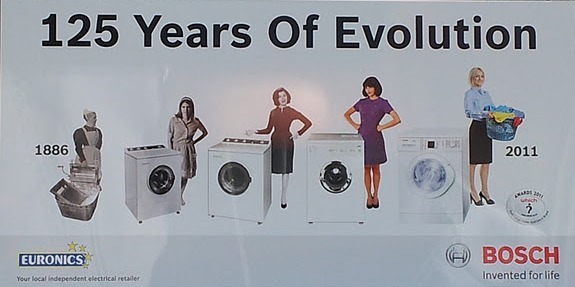
August 26, 2013, by ICCSR
The beauty of the sustainability sector is that it recognises gender issues aren’t confined to within office walls
The business case for gender equality has really taken off. With the help of reports from McKinsey, Forum for the Future and Oxfam, the message to boost opportunities for women in business is finally getting out. Getting women into leadership positions and particularly on the board, is an especially hot topic. As recruitment firm Korn/Ferry Whitehead Mann reported, the message seems to be working: the number of female appointments to FTSE 300 boards jumped from 11% in 2007 to 47% in 2012. Unfortunately, this trend now appears to be slowing despite pressure from campaigns such as the 30% Club and the threat of quotas.
The number of women in leadership positions remains an important indicator of progress on gender equality. But here’s the thing: not everyone in a company can be on a board. Not everyone wants to be in a senior management role. More pressingly, many more women are involved in businesses as stakeholders. We are customers, suppliers, supply-chain workers. We grow food. We pick cotton. We sell products in supermarkets and write copy in advertising. Gender inequality permeates these areas, with perhaps more critical consequences than the boardroom debate. A gender pay gap persists globally, and for some can mean the difference between life and death. The beauty of CSR and the sustainability sector is that it can recognise this, cross borders and tackle gender issues beyond office walls, through a triple-bottom line approach.
Cocoa, for example, has been a traditionally male-dominated crop. With cocoa trees aging and more men migrating to cities, women are becoming more visible in the cocoa supply chain. What’s more, women are often involved in the key processes that ensure your bar of the good stuff tastes, well, good. Stephanie Barrientos has recently demonstrated that unless chocolate companies start working with women to identify their challenges and find solutions, the core chocolate product may start to suffer. Divine have had a gender programme since 1998 to this effect, and Mondelēz (owners of Cadbury) are following suit.
Companies are increasingly widening their choice of suppliers to include women-run, smaller enterprises. Vodafone has run a celebrated programme recruiting women in Qatar and soon Yemen, to sell products and services. Cross-cultural issues within business are often at their stickiest when it comes to gender inequality. However, this peer-to-peer Avon-style selling, equips women with new skills and roles, helping to push lightly but surely at the confines of stereotypes. It has also brought income and access to new markets for its business.
From Asda’s Christmas advertising (Behind every great Christmas there’s mum), to Oven Pride (So easy even a man could do it), consumers frequently complain about products being sold and the way women and men are being depicted to sell them. Pink Stinks, a campaign run by two mums concerned about the proliferation of stereotyped toys for children, regularly outs offending companies. The No More Page 3 lobby successfully leveraged a Twitter campaign against Lego to stop them advertising with the Sun.
Affiliation with sexist imagery, not just ownership of it, leaves businesses open to accusations of sexism and highlights responsibility beyond their core product. We witnessed this in fast-forward when a multitude of businesses withdrew their advertising from the News of the World following the hacking scandal.
It has been argued that women underpin business, often providing free care to children, the elderly and the sick, propping up huge global markets through these undervalued roles. Worryingly, women are also first to be hit when markets fail, water runs dry or flooding prevails. In terms of environmental sustainability, decades of research has demonstrated that women are crucial in fighting and mitigating climate change. The Mary Robinson Foundation focuses on women’s experiences and needs on the climate change agenda. The private sector can and should follow suit.
Leading for gender equality is not just about ensuring equal representation on corporate boards, or even in the top jobs. It requires men and women, working together towards a more equitable situation throughout the business. We need strong leaders, male and female, to recognise that gender equality matters in the office to the street, and from field to factory.
By Lauren McCarthy, International Centre for Corporate Social Responsibility, Nottingham University Business School
Image by Tengrain CC BY-NC 2.0 http://www.flickr.com/photos/96024429@N00/7997976890/

Just to note that the original version of this article was published on the Guardian Sustainable Business Leadership hub on the 5th August 2013. Available here: http://www.theguardian.com/sustainable-business/gender-equality-beyond-leadership-positions?CMP=twt_gu